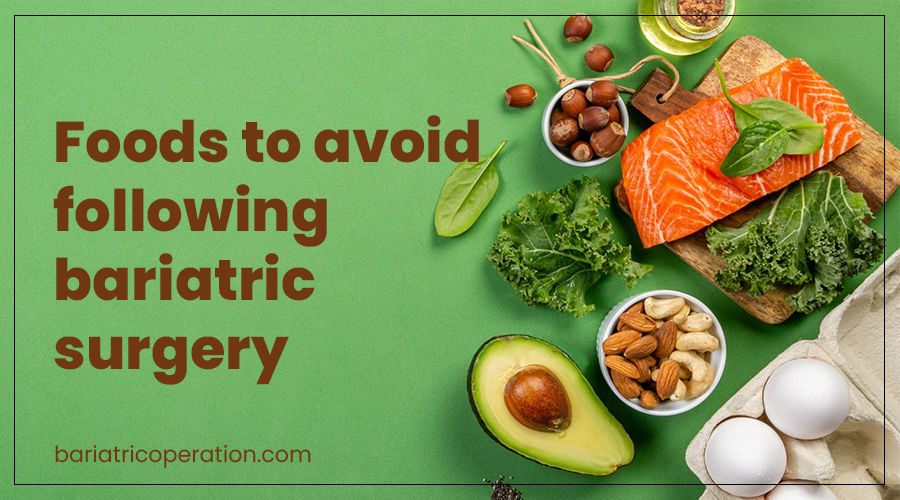Foods to avoid following bariatric surgery
Are you looking into getting bariatric surgery to assist you in losing weight and improving your overall health? If that’s the case, you’ve already made a significant advance in living a healthy life. On the other hand, it is essential to keep in mind that bariatric surgery is only a single step along the way. You will need to make important adjustments to both your diet and your lifestyle in order to get the most out of the operation you are having. After your operation, avoiding particular foods will be one of the most crucial adjustments you’ll need to make to your diet.
You should, first and foremost, stay away from meals that are rich in both sugar and fat content. After having bariatric surgery, your body may have trouble digesting foods that are not just heavy in calories but also tough to break down. Avoid eating fried meals, candies, ice cream, and pastries since these are examples of foods that are heavy in both sugar and fat.
You should also stay away from meals that are tough to chew or swallow because this might make your condition worse. Your stomach will be smaller than it was before bariatric surgery, and your digestive system may become more sensitive as a result. Because of this, it is important for you to steer clear of meals that are fibrous, rough, or otherwise difficult to chew and digest. Steak, fresh vegetables, and rough cuts of meat are a few examples of meals that might be difficult to chew and swallow.
After your operation, in addition to staying away from specific kinds of food, you need also make sure that you are obtaining a enough amount of protein. Protein is critical for both the preservation of muscle mass and the promotion of healthy weight reduction. Lean cuts of meat, fish, tofu, and lentils are all excellent options for those looking to get their protein fix.
Last but not least, it is essential to keep in mind that everyone has a unique physical make-up, and so, what works for one person could not work for another. Talk to your surgeon or a certified dietitian if you are unclear about the meals you ought to steer clear of after undergoing bariatric surgery. They are able to assist you in developing an individualized eating strategy that is tailored to your specific nutritional requirements and is supportive of your objectives regarding weight loss.
In conclusion, bariatric surgery has the potential to be a life-changing therapy for individuals who are battling obesity. On the other hand, it is essential to keep in mind that the operation is but one step along the way. A healthy, sustainable eating plan that supports your weight reduction objectives and helps you live your best life may be created by excluding specific items from your diet, consuming an adequate amount of protein, and working with your healthcare team.

Leave a Reply